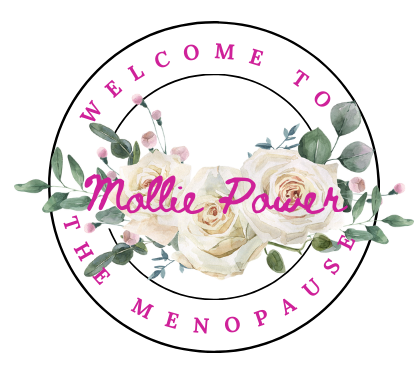
Have you heard of andropause? Often overlooked, it is a significant period in a man’s life, marking the transition into older age. You could think of it as the male counterpart to menopause. It involves gradual changes and can trigger a host of physical and emotional symptoms.
“Hold on,” you might be thinking, “I’m familiar with menopause in women, but what exactly is andropause?” In simple terms, andropause refers to the phase in a man’s life when there is a noticeable decline in testosterone levels. This usually happens when a man is in his 50s or 60s, though it can vary.
The symptoms? They are more than just the butt of jokes about midlife crises. Fatigue, lowered libido, mood swings, difficulty concentrating, and changes in physical vigour are among the common experiences. These can quietly take a toll on everyday life and should not be brushed aside.
Bodily, it all comes down to hormones. As men age, the gradual decrease in testosterone can disrupt the status quo, leading to the signs and symptoms commonly linked to andropause. You may be surprised to learn how widespread this condition is. Studies suggest many men will encounter some degree of andropause, yet the topic is rarely at the forefront of health discussions.
However, with a clearer understanding of andropause, you are better equipped to face it head-on. Knowledge is power. And while it may feel isolating at times, remember that andropause is a natural part of aging, shared by many.
Breaking the Taboo: Normalising Conversations About Male Aging
It seems peculiar that in a society brimming with information on aging, a natural process like andropause remains shrouded in silence. Yet, it is true that discussing male aging, specifically andropause, is often avoided. It is crucial to ask ourselves why this topic has been a taboo and to recognize the impact this silence has.
Often, there is an underlying stigma associated with aging in men, perceived as a decline in vigour and masculinity. This can lead to various psychological effects, including denial, anxiety, or even depression. Such reactions underscore the need for these conversations to be as ordinary as talking about the weather.
I advocate for openness, and so should you. It is essential for men navigating these changes to feel comfortable seeking support and expressing what they are going through. A problem shared can become a problem halved.
The onus is also on the shoulders of family members and healthcare providers. They play a pivotal role in creating a safe space where conversations about andropause can happen. The dialogue surrounding male aging needs to shift, emphasising that changes are natural and manageable with the right support.
When men can speak freely about their experiences without fear of judgment, they take a fundamental step forward. A man informed about andropause is in a better position to recognise its onset and is more likely to take proactive measures to manage its symptoms.
Proactive Steps to Manage Andropause Symptoms

I understand that dealing with andropause can be challenging, but I have learned through research and conversations with health experts that taking specific proactive steps can make a significant difference in managing its symptoms.
Adopting healthier lifestyle choices is an excellent starting point. Balanced diets rich in antioxidants, good fats, and lean proteins can help mitigate hormonal imbalances. Staying hydrated and reducing alcohol and caffeine intake are also beneficial.
Regular exercise should be a cornerstone of your daily routine. Not only does it help control weight and build muscle mass, but physical activity has been found to boost testosterone levels and improve mood.
Besides lifestyle modifications, medical treatments are available. Testosterone replacement therapy, for example, is widely discussed. However, it is not suitable for everyone, and understanding the risks and benefits is essential before considering this option.
Alternative therapies like acupuncture, meditation, and herbal supplements may provide relief for some men. It is important to consult with a healthcare professional before starting any new treatment, as they can help decide what is appropriate based on individual health needs.
Remember, taking these steps not only aims to reduce the impact of andropause symptoms but also paves the way for ongoing health and vitality.
Embracing a Vibrant Future: Thriving Beyond Andropause
As I approach the end of our discussion on andropause, I want you to remember that it is not merely a phase to endure, but a chapter that opens the door to growth and vitality. Accepting andropause as a normal stage of life can significantly change your outlook and help you live more fully.
One of the greatest gifts you can give yourself during this time is the investment in social connections. Whether it is through community activities, family gatherings, or new friendships, staying socially active enriches your life and boosts your mental health.
Far from being a signal to slow down, entering the andropause stage of life is your cue to plan proactively for the future. Think about what excites you and makes life worth living. Now is the time to pick up new hobbies, travel, volunteer, or even explore educational opportunities.
AGING DOESN’T HAVE TO BE A DOWNHILL JOURNEY. With the right mindset, support, and lifestyle, the post-andropause years can be some of the most rewarding. Keep engaging, keep discovering, and keep enjoying every moment life has to offer.
Welcome To The Menopause family,
We are all about sharing stories here, and we want to hear yours! After diving into our latest post, we’re eager to know how it resonated with you. Did you relate to a particular point? Maybe you have your unique take on the topic?
Let’s make this space a hub for diverse experiences. Drop a comment below and let’s spark a conversation. Your voice matters, and we can’t wait to read your insights!
Cheers to sharing and connecting!
